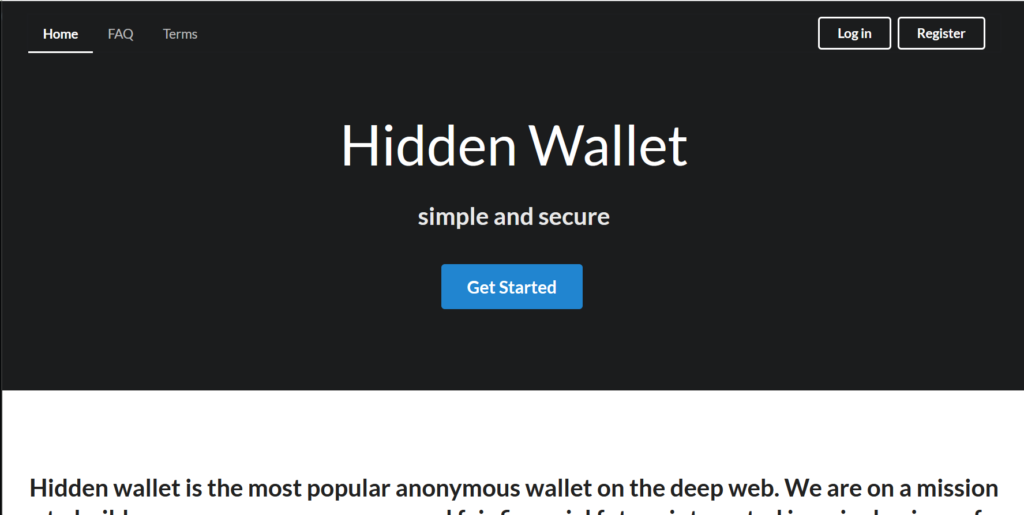Table of Contents
ToggleHidden Wallet – TOR Scam Report (1)
Onion Link: http://d46a7ehxj6d6f2cf4hi3b424uzywno24c7qtnvdvwsah5qpogewoeqid.onion
Scam Report Date: 2024/07/08
Client Scam Report Breakdown
Original Report Summary:
The client reports losing a small but significant amount of Bitcoin, specifically 0.002 BTC, transferred to an anonymous deep web wallet service known as “Hidden Wallet.” According to the client, the Bitcoin never appeared in their Hidden Wallet account, despite the transfer being completed. The client emphasizes the severity of this loss by noting it was all the money they had, indicating an expectation that Hidden Wallet would securely receive and retain their funds. This incident has led the client to believe that the funds are irretrievably lost, leaving them without any apparent recourse to reclaim their Bitcoin.
Terminology and Report Clarifications
To understand the client’s situation and their initial trust in Hidden Wallet, several key terms need to be clarified. Hidden Wallet markets itself as an anonymous, secure “deep web” wallet accessible via the Tor network. A “deep web wallet” refers to a cryptocurrency wallet that exists only on the Tor network, providing additional anonymity and resistance to tracking. The term “mixing” in the context of Bitcoin refers to a process wherein coins are cycled through various addresses and exchanges, making it difficult to trace the original source or destination. This is a common feature promoted by Hidden Wallet, which claims to ensure user privacy by employing advanced security and “mixing” techniques. The client’s deposit of 0.002 BTC, equivalent to approximately $60-70 USD, was intended to take advantage of these services. However, with the funds missing, the client appears to question the wallet’s reliability and its guarantees.
Analysis and Recommendations
The client’s report suggests potential issues with Hidden Wallet’s transparency and operational reliability. The failure of funds to appear in the client’s account may indicate a service interruption, fraudulent activity, or a scam operation. Hidden Wallet’s own marketing claims that user Bitcoin is untraceable and secure, with deposits mixed to protect user anonymity; however, this process is unverified, especially on anonymous platforms lacking accountability. Hidden Wallet’s claim of hosting on Tor is also a double-edged sword, as it complicates tracing funds while increasing the risk of unregulated activity. Moreover, unlike regulated exchanges that adhere to AML (Anti-Money Laundering) and KYC (Know Your Customer) policies, Hidden Wallet’s “no-compliance” stance removes user protections and government oversight, putting users at higher risk for potential losses without recourse. Therefore, clients are advised to exercise caution with services operating in an unregulated environment, particularly when anonymity is emphasized over security and accountability.






